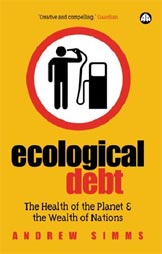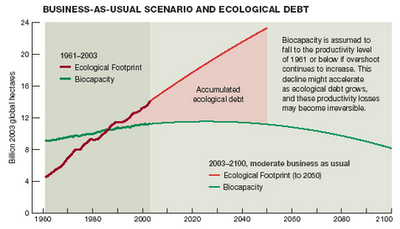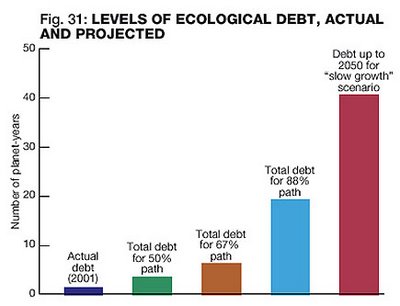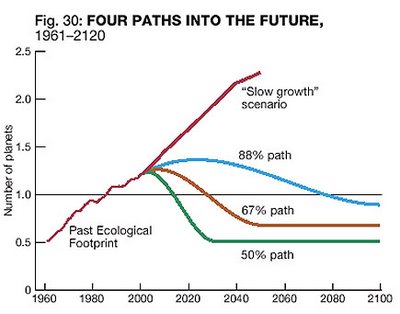 Global ecosystems face collapse due to societal "Ecological Debts"
Global ecosystems face collapse due to societal "Ecological Debts"
Current global consumption levels could result in a large-scale ecosystem collapse by the middle of the century, environmental group WWF has warned.
The group's biannual Living Planet Report said the natural world was being degraded "at a rate unprecedented in human history".
Terrestrial species had declined by 31% between 1970-2003, the findings showed.
It warned that if demand continued at the current rate, two planets would be needed to meet global demand by 2050.
The nations that were shown to have the largest "ecological footprints" were the United Arab Emirates, the United States and Finland.
Paul King, WWF director of campaigns, said the world was running up a "serious ecological debt".
"It is time to make some vital choices to enable people to enjoy a one planet lifestyle," he said.
The findings echo a study published earlier this month that said the world went into "ecological debt" on 9 October this year.
By 2050 accumulated ecological debt may be irreversible
The study by UK-based think-tank New Economics Foundation (Nef) was based on the Ecological Footprint data compiled by the Global Footprint Network, which also provided the figures for this latest report from the WWF.

Read more on proposed 'Pollution Penance' tactical alternatives to pay down our individual and collective Eco Debts here and here
via BBC, ABC News, and WWF
Share ideas that inspire. FALLON PLANNERS (and co-conspirators) are freely invited to post trends, commentary, obscure ephemera and insightful rants regarding the experience of branding.
Saturday, October 28, 2006
"Don't Panic": Ecological Debt
Subscribe to:
Post Comments (Atom)















No comments:
Post a Comment